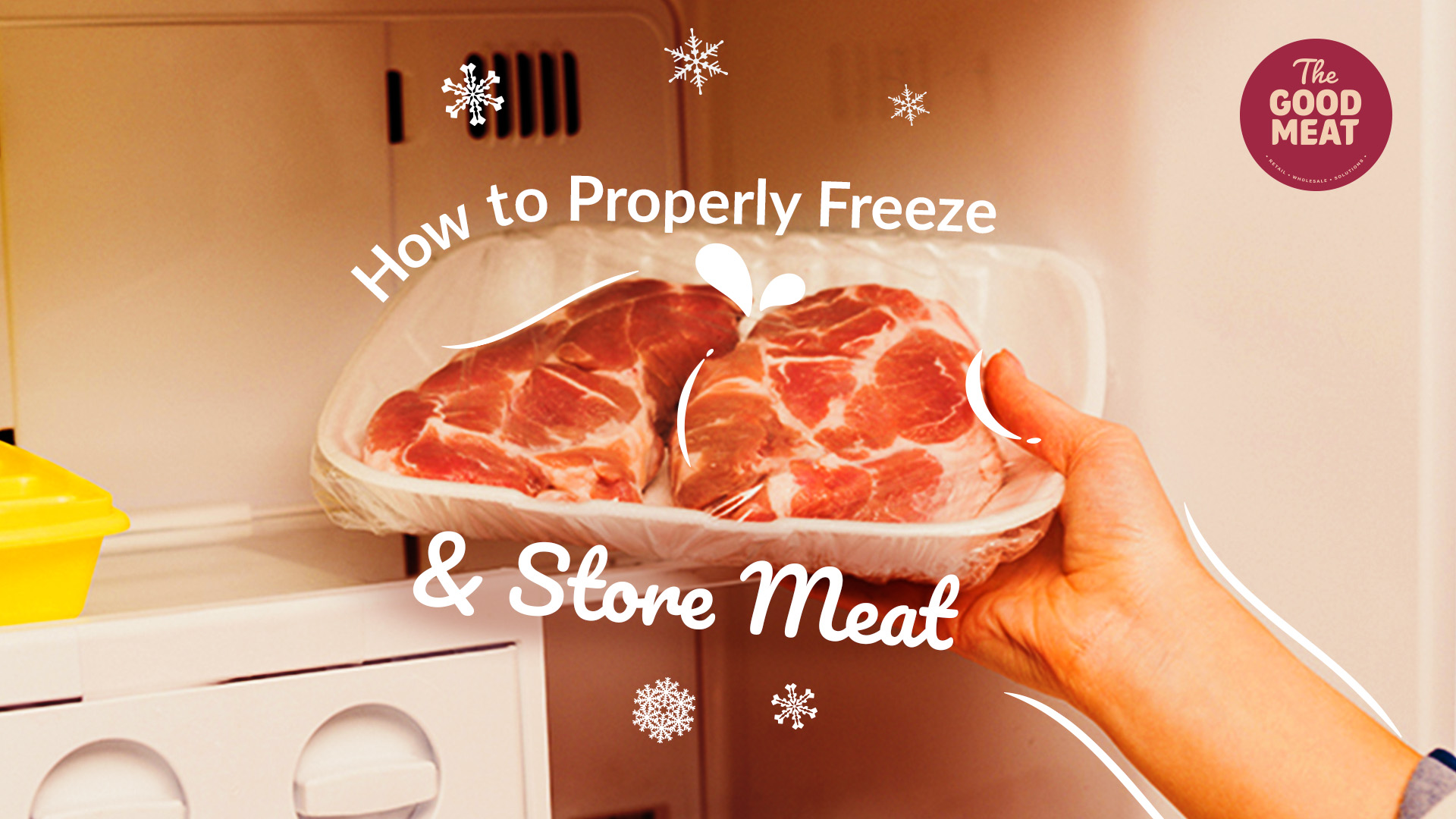
How To Properly Freeze & Store Meat
Meat will always be part of every Filipino’s family meal. To ensure our family and loved ones get the best meal on their plates, a reliable and good supplier of fresh produce, especially meats, must be your top priority.
Fresh meats can be bought from the wet market, local grocery, or meat stores, but due to the pandemic, these can now be conveniently bought online and directly delivered to the safety of our homes.
It is practical to buy meat based on your household needs and storage areas such as refrigerator and freezer availability and capacity. Living in a tropical country, fresh meat is highly perishable if left out for too long in the heat. This needs to be stored properly to maintain its freshness, keep it safe from bacteria growth, and prevent unnecessary spoilage.
Tips For Freezing Meat
When the meat reaches our houses, we either cook it directly or store it in the refrigerator if it’s going to be cooked soon. If the meat will not be used immediately, it is recommended to freeze the meat right away to extend its shelf life. This is one of the best ways to preserve its freshness, but we need to do it properly.
It is advisable to wash them using running water to remove physical impurities and to cut the meat based on the recipes in mind. Portion the meats and pack them in separate containers based on the recipe and cooking schedule. This will prevent thawing a large amount of meat and refreezing some parts, which can cause spoilage or bacteria to grow.
Not sure whether to keep your meats in the refrigerator or the freezer? A good rule of thumb is that your freezer is ideal for longer storage. As for your refrigerator, you can set down your meats here if you intend to cook them immediately after buying them. This is also where you will place your meats when you need to defrost or thaw them overnight so that they’re ready to cook the next day.
Tips For Storing Meat
Refrigerator and Freezer? Check. Clean Meat? Check. Now, where can you store them? You can use foil, plastic wrap, and airtight containers to store frozen meat. Airtight containers prevent freezer burn, which is when meat develops white, dried-out patches as air comes into contact with the meat surface. Freezer burn is a condition we don’t want our meat to be in; it means drying or loss of moisture and palatability of the meat.
Once it’s clean and properly packed, you can now freeze your meat. Remember not to overload the freezer and the refrigerator, as cool air cannot flow properly, and uniform cooling will not be achieved.
Keep in mind that you can generally freeze meats for up to 4 months or even more, but this will all depend on what type of meat you will store. However, to stay on the safe side, one thing every meat lover should practice is to always look at the expiration dates or sell-by dates listed on the pack.
Practicing proper storage and freezing of meat keeps it safe for family consumption. This gives you the confidence to prepare safe and quality dishes for your loved ones.
References:
Meat Storage. The Meat We Eat. Retrieved May 19, 2022, from American Meat Science Association
Tools and Tips for Freezing Food so Nothing Goes to Waste. May 6, 2020. WireCutter. Retrieved May 19, 2022 from New York Times



